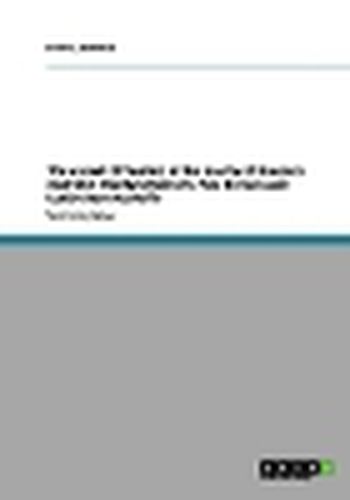Readings Newsletter
Become a Readings Member to make your shopping experience even easier.
Sign in or sign up for free!
You’re not far away from qualifying for FREE standard shipping within Australia
You’ve qualified for FREE standard shipping within Australia
The cart is loading…






Seminar paper from the year 2009 in the subject English - Literature, Works, grade: 1,3, RWTH Aachen University, language: English, abstract: I write to heal (Scofield Gathering 821), writing became my medicine (Halfe Bear 1272), be healed through creative expression (Payne 1353), he writes us weapons and shields, weaves us blankets (Driskill 2224), Indigenous writers (…) narrate Indigenous experiences under colonialism in an effort to heal (Episkenew 15). Native literature - be it a poem, a drama, a novel or research literature - brims over with allusions as to why Native writers mostly intend to write, to compose and to publish: to tell the truth, to spread their culture, to strengthen their identity, to empower and find themselves, to unite, to change, to resist, to reanimate. But nearly every reason and method to do so ultimately starts and ends with an attempt to heal. Many Native and Metis authors for example write about their own lives, experiences and emotions - say about the loss of a beloved person - to cure their own soul wounds. Some process the history or widespread problems of many Natives to treat the wounds of their whole community caused by alcohol, rape and exclusion. They attempt to heal injuries that colonialism and racism had inflicted (1) e.g. by telling the Natives’ history from their own perspective, a ‘history from below’ in the manner of speaking. In this term-paper, I will concentrate on this very act of healing and therefore also on the contents of their poems rather than on their form. I want to examine different works with a particular focus on the wounds, which demand to be healed, within them and I want to present the ‘patients’ that suffer from these injuries - i.e. the people that are to be cured. In doing so, I will analyse the works of Gregory Scofield, Marilyn Dumont, Louise Bernice Halfe and Ruth ‘Roo’ Borson. Which issues do these poets attempt to process by writing about them?
$9.00 standard shipping within Australia
FREE standard shipping within Australia for orders over $100.00
Express & International shipping calculated at checkout
Seminar paper from the year 2009 in the subject English - Literature, Works, grade: 1,3, RWTH Aachen University, language: English, abstract: I write to heal (Scofield Gathering 821), writing became my medicine (Halfe Bear 1272), be healed through creative expression (Payne 1353), he writes us weapons and shields, weaves us blankets (Driskill 2224), Indigenous writers (…) narrate Indigenous experiences under colonialism in an effort to heal (Episkenew 15). Native literature - be it a poem, a drama, a novel or research literature - brims over with allusions as to why Native writers mostly intend to write, to compose and to publish: to tell the truth, to spread their culture, to strengthen their identity, to empower and find themselves, to unite, to change, to resist, to reanimate. But nearly every reason and method to do so ultimately starts and ends with an attempt to heal. Many Native and Metis authors for example write about their own lives, experiences and emotions - say about the loss of a beloved person - to cure their own soul wounds. Some process the history or widespread problems of many Natives to treat the wounds of their whole community caused by alcohol, rape and exclusion. They attempt to heal injuries that colonialism and racism had inflicted (1) e.g. by telling the Natives’ history from their own perspective, a ‘history from below’ in the manner of speaking. In this term-paper, I will concentrate on this very act of healing and therefore also on the contents of their poems rather than on their form. I want to examine different works with a particular focus on the wounds, which demand to be healed, within them and I want to present the ‘patients’ that suffer from these injuries - i.e. the people that are to be cured. In doing so, I will analyse the works of Gregory Scofield, Marilyn Dumont, Louise Bernice Halfe and Ruth ‘Roo’ Borson. Which issues do these poets attempt to process by writing about them?